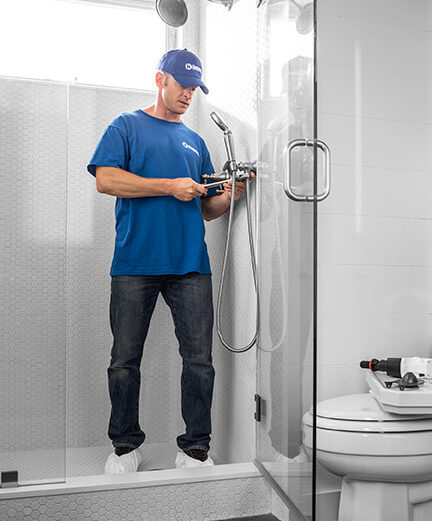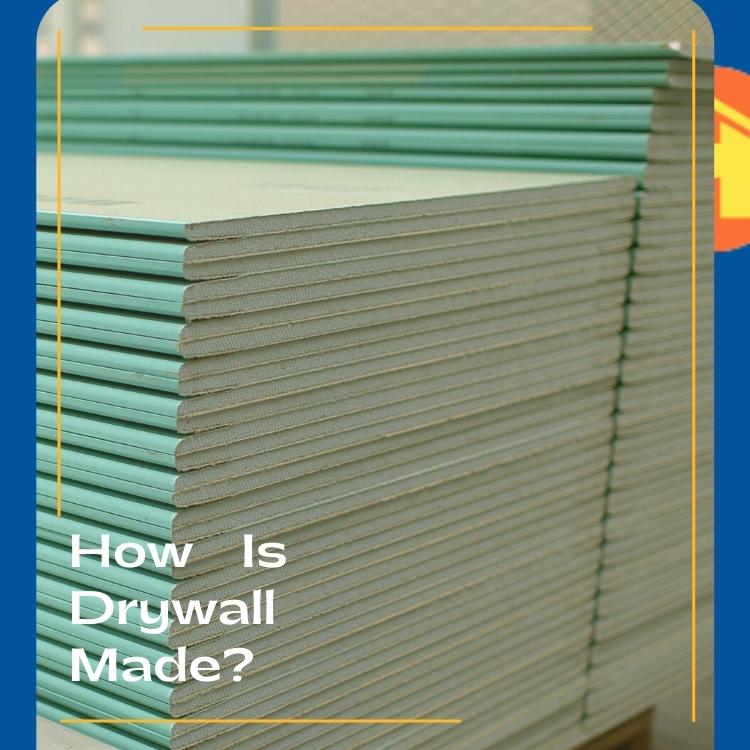We offer a wide range of services for that fresh look, or just maintenance or updates to keep your home functioning and safe. Regardless of the size of the job, we have a craftsman that can tackle it. We offer a wide range of services for that fresh look, or just maintenance or updates to keep your home functioning and safe. Regardless of the size of the job, we have a craftsman that can tackle it.

Drywall / December 23, 2021

Most of the walls and ceilings that you encounter on a daily basis are made of drywall, including the ones in your home. Drywall is a versatile material that has been used in construction for about 80 years. You may occasionally run into issues requiring drywall services in Toronto West, but the material is so durable and reliable that most people do not have any problems with it and rarely think about it. Nevertheless, it may be valuable to know how drywall is made.
Drywall is made of a mineral called calcium sulphate hydrate, more commonly known as gypsum. Typically appearing as a white or grey rock, gypsum forms between the layers of sedimentary rock when water containing sulphates and calcium collects in the rock, evaporates, and is later replenished. Gypsum is mined from the ground. Ontario is a producer of Canadian gypsum, as are British Columbia and Manitoba, but the major producer is Nova Scotia, responsible for nearly three-quarters of all Canadian gypsum production.
Gypsum is known for being very soft, only rating a two on the Mohs scale of mineral hardness. It also has binding properties, which is part of what makes it useful for drywall. The raw gypsum is taken to a factory where it is ground into fine particles. It is mixed with water and other additives, such as thickening agents, to form a paste-like fluid.
If you’ve ever seen a sheet of drywall that has not yet been painted on or otherwise altered, you know that it has a covering made of a sort of thick paper on the front and back. This is called Manila paper. To make drywall, the gypsum paste is spread evenly over one sheet of paper, then another sheet is laid on top. The two sheets of Manila paper with the gypsum paste in between are all placed into a special oven that dries and hardens the gypsum by exposing it to extremely high temperatures. Drywall sheets are typically four feet wide and between eight and 12 feet tall.
Drywall goes by many different names, including plasterboard, wallboard, and Sheetrock, which is a brand name but many people use it generically. Originally, it was known as Sackett Board after the company that developed it in 1916. The term “drywall” was coined to highlight the contrast between the traditional way to construct walls at the time, which was to paint wooden laths with multiple layers of wet plaster, waiting for the previous layer to dry before applying the new one. The new material came to be known as drywall because there was no need for any wet plaster application.
Installing drywall is much easier than the traditional plastering of walls and ceilings. It takes a much shorter amount of time. Though many homeowners prefer to have drywall professionally installed to make sure the job is done correctly, it can be installed by amateurs. If something does damage your drywall, it is a relatively simple matter to repair or replace the affected section, something that would be much more difficult and expensive with plaster.
One of the biggest benefits of drywall is that it provides a degree of fire resistance. The gypsum used to make drywall contains water in crystallized form. The heat from the fire causes the water crystals to evaporate. As a result, the drywall stays relatively cool, at least for a while.
While drywall is easy to install, it can cause unsightly blemishes to your wall if installed incorrectly, which could also affect structural integrity. Our technicians are trained and experienced in drywall installation as well as home repairs involving drywall. Learn more about the services we offer.